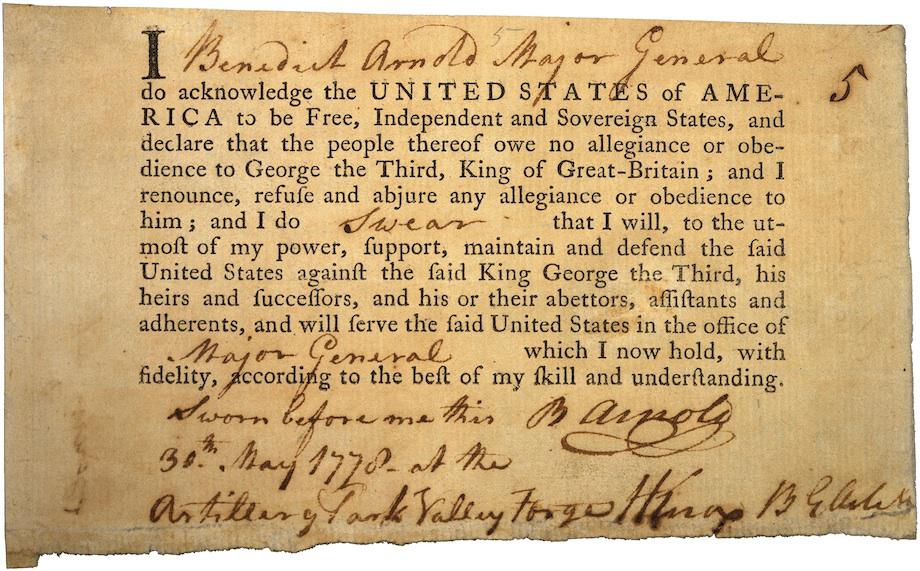The National Archives has in its collection four books full of loyalty oaths signed by officers of George Washington’s Continental Army. Later events invested this one, signed by Benedict Arnold on May 30, 1778, with a particular poignancy.
Benedict Arnold’s name is infamous now, but at the beginning of the conflict he was a true Son of Liberty who had used his own money to train Continental troops and gained respect for his contributions to the capture of Fort Ticonderoga and the victory at the Battle of Saratoga.
When he swore this oath, Arnold teetered somewhere between his early loyalty and bitter dissatisfaction. He had suffered a painful injury, become disgruntled with what he saw as the Congress’ skimpy financial support for the Army, and felt that he had been passed over unjustly for promotions and glory.
Because of the particular circumstances of this war, in which loyalists to the Crown could pass as Continental officers, leaders worried about traitors in their ranks. By asking officers to sign loyalty oaths, the command hoped to force the issue with suspected sympathizers.
After the Continental Congress approved this particular oath, the printed pages were brought to the Army’s camp at Valley Forge. There, each officer read the oath out loud, while another witnessed. (Washington witnessed many of these oaths, but in Arnold’s case, the witness was Henry Knox, later to become the first Secretary of War.)
The document came with a blank space in the middle of the text, where the officers were given the option to insert “swear” or “affirm.” Members of some religious sects (Quakers, for example) refused to “swear.” Later versions of American military loyalty oaths, such as the ones sworn to by present-day members of the US Armed Forces, include the promise to uphold the Constitution; for obvious chronological reasons, Arnold’s omits this detail.
Arnold’s acts of treason didn’t come until two years after he spoke these words and signed his name, when, as a Major General, he plotted to betray his command at West Point to the British.

Thanks to Trevor Plante of the National Archives.